Calming the waters: How Bishop Richard Henning sees his mission leading RI's Catholics
All his life, Bishop Richard Henning has felt called to deep waters.
Growing up on Long Island, he was always on a boat or walking along a beach. It’s as innate to him as his call to a life in the priesthood.
“So much of my life has been around water,” he said. “I call it my happy place.”
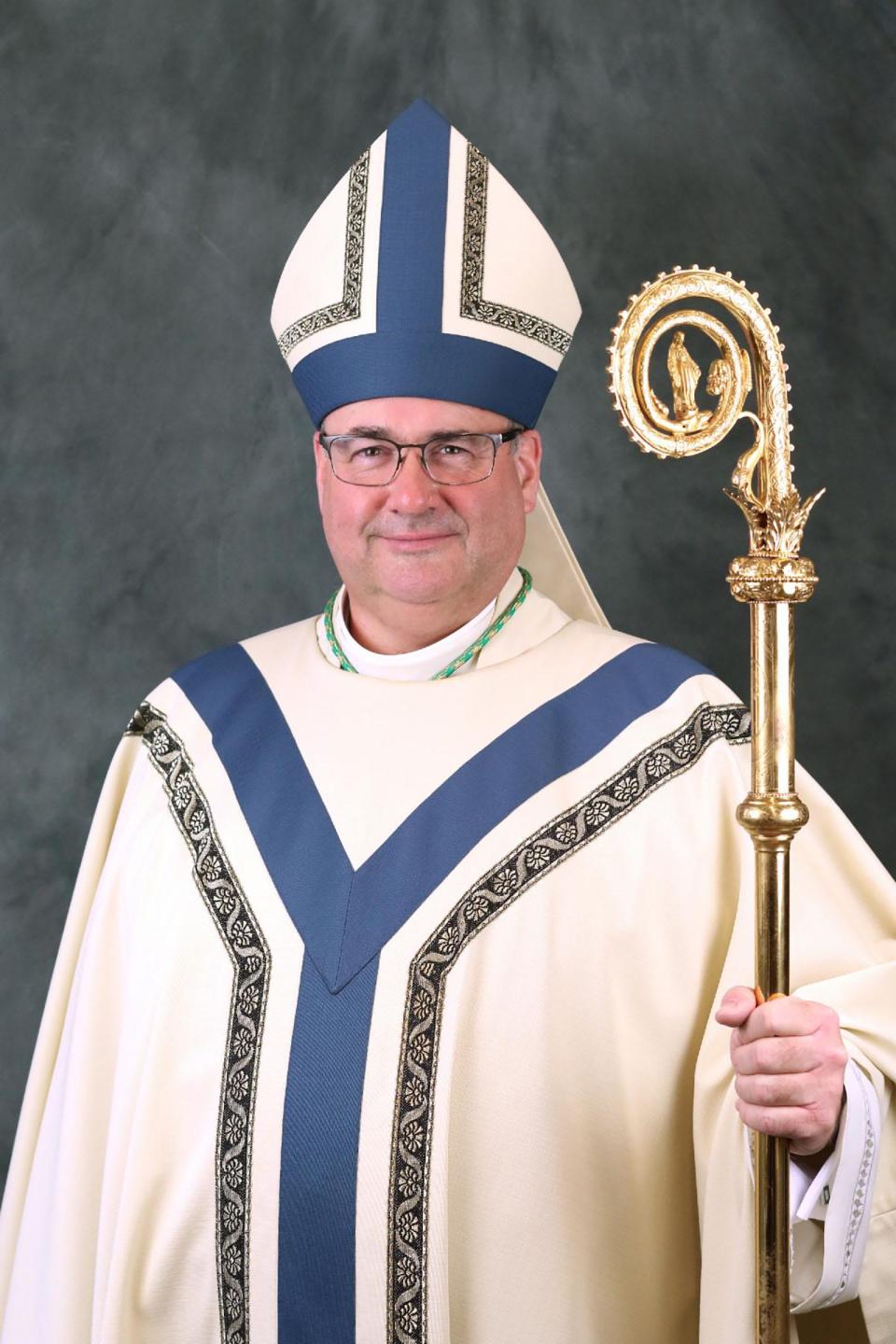
So it's hardly surprising that water was part of the motto he chose when he became an auxiliary bishop in 2018. He picked “put out into the deep” from the Gospel of Luke.
“The Gospel doesn't say this, but shallow water is dangerous,” he said. “It's counterintuitive when someone's having trouble in the waves, they actually sometimes are better off to go deeper rather than, you know, stay in the shallows.”
Henning is more comfortable in those deep waters.
Twitter, with its toxicity, as he put it, and its quick sound bites is no place for him. He prefers conversation. Instead of glossy answers to questions, he trends toward thoughtful, nuanced ones. When his congregants talk about the minutia, he'll ask, “What is the mission?” Maggie Killeen, his longtime friend and a parishioner at his former diocese, said.
More: Who is Bishop Richard Henning, the new coadjutor bishop of Providence?
What is the bishop’s job? Part pastor, part CEO
The bishop's hat is a heavy one to wear in the Catholic Church.
There’s a prestige woven into it, as surely as the gold thread in the mitre. Some priests campaign for the job, although Henning, who succeeds Bishop Thomas Tobin as head of the Diocese of Providence, very earnestly says he did not.
But with that prestige comes heavy responsibility. Bishops are ultimately responsible for the governance of the dioceses — human resources, the real estate portfolio, the budget, and public relations.
And then there’s the not-so-small matter of leading both priests and parishioners. The numbers are a little hazy, but Rhode Island still appears to have the highest percentage of baptized Catholics in the country. It’s a considerable number of people to guide.
“This is where pastoral leadership is different than being the CEO of a corporation,” Henning said. “Here we’re talking about the people’s spiritual lives. … I’m trying to discern, what is it that God wants here. … I am called, to the best of my ability, to discern what is it that God wants for his people. For any of us, right? And how do I respond to that? In every way possible.”
More: Pope accepts Tobin's resignation, Providence gets new bishop
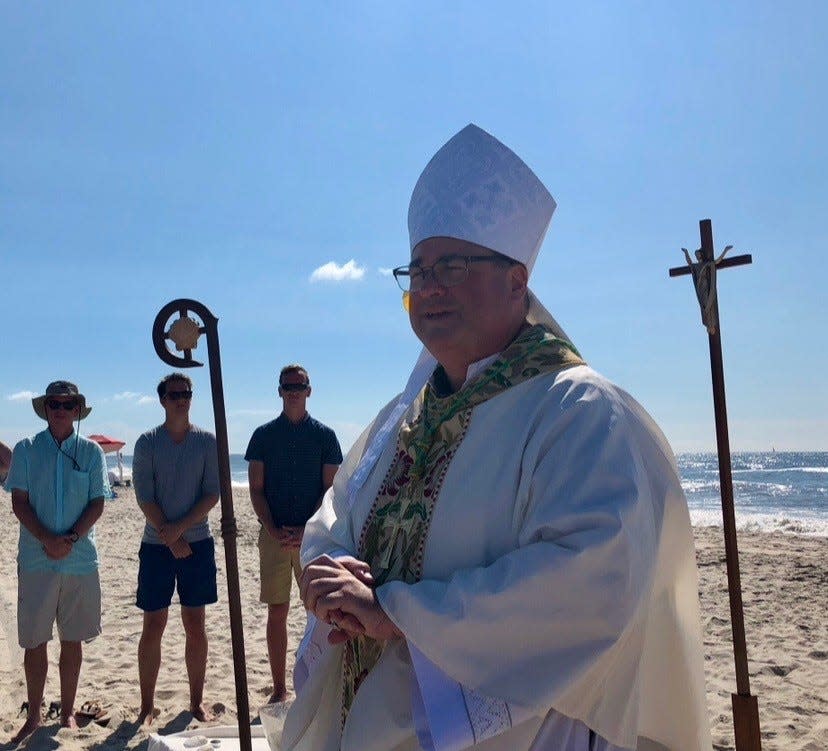
Bishop Henning’s ties to the Hispanic community
About 30 years ago, Henning was assigned a parish in a fairly well-off neighborhood of Long Island that had a large number of immigrants from El Salvador working in the service industries, migrants who had fled the bloody and lengthy civil war, where they had seen Catholic leaders such as Archbishop Oscar Romero assassinated and the deaths of “lay men and women who had stood up for the oppressed in the face of violence and mistreatment.”
“It was a community that had suffered a lot … that was stressed and poor and traumatized and yet full of joy and family and faith,” he said. “It was so formative for me.”
His predecessor as pastor of that congregation had lived in Mexico for 20 years and was perfectly fluent in Spanish.
Henning was not.
So four days a week, a group of four women from this community tutored him, each taking one afternoon a week. Then on Saturdays, he would attend their prayer group meeting and just sit in the back and listen. This went on for a year, until he could preach and hear confessions in Spanish.
“It was being thrown into the deep end of the pool,” he said. “It was a response to the need in front of me. Here I am, meeting people, and they’re asking to go to confession, and I can’t help them. We had so many families that were poor, that had a lot of struggles, that were being treated unjustly, and you have to try to go to bat for them, but I couldn’t understand what they were telling me. It was desperation. I couldn’t function unless I learned this thing. They tossed me into the deep end of the pool, and I had to learn that way.”
Father Tetrault's legacy: RI priest practiced what he preached to Providence's poor
What Bishop Henning hopes to accomplish in Rhode Island
In a way, that moment has come back around.
For someone who never pictured himself leaving Long Island, the move to Rhode Island has him in deep waters once again.
Henning has thrown himself into the new landscape with the same quiet determination to find his discernment here. From his arrival in the state during Holy Week, he was out “every day and night” going to parishes, celebrating the Eucharist, visiting schools, visiting the State House, attending confirmations and talking with priests.
Then, in his off time, he continued to crisscross the state, walking his 9-year-old Labrador retriever, Agnes (named after St. Agnes, the patroness of the Diocese of Rockville Center on Long Island). He said he often prays while walking Agnes.

He’s listening for that discernment, the “why me here,” he said. Henning doesn’t know all the answers, or even most of the answers yet, saying that would be unwise, but he knows some of them.
He knows one of the reasons he's here is to care for Hispanic parishioners.
“I go to the Spanish-speaking communities, and there is a joy they feel to know that, and this is what they keep saying to me, that I understand them,” he said. “Even when a person learns English, which most people have to for work purposes, for issues related to your spiritual life, your prayers are so kind of core that they are always more comfortable in your native language.”
The second thing tugging at him is a need for revival, which is something he saw on Long Island, too.
“We have these huge institutions, and yet we find too many of our people are wandering away. You’re drifting away from the faith,” he said. “They’re not seeing the meaning in it any longer, and we need to find a way to speak to people’s hearts.”
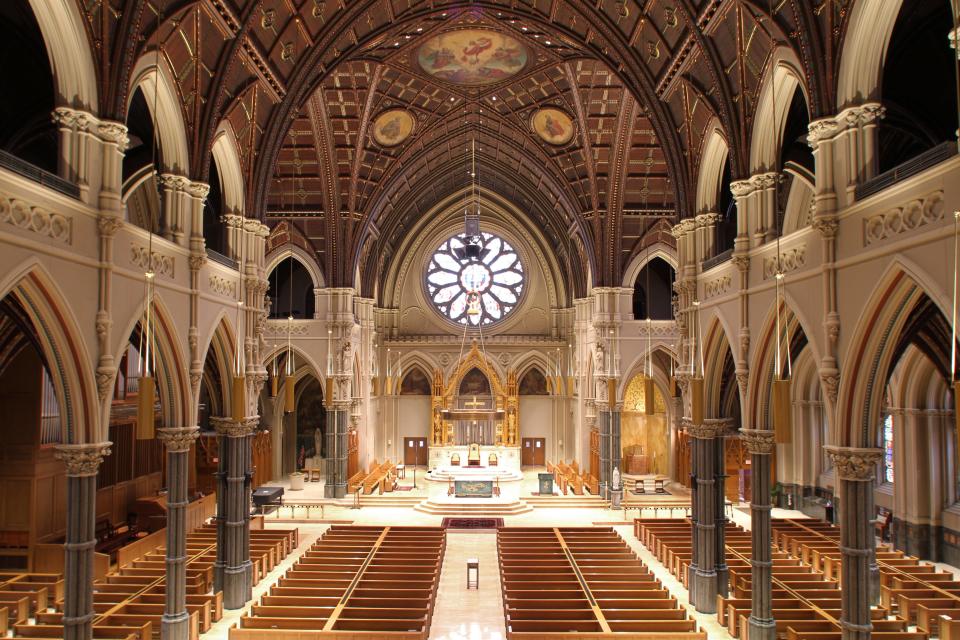
How do we pivot, he asked, from maintaining buildings, albeit beautiful ones, and institutional life, to focus on pastoring?
“I need to work with the people here and priests to figure out, how do we find a new way to live a vibrant Catholic life?” he said. “In this midst of all of these challenges, can we even really maintain all of that infrastructure, or are we better off without? They’re difficult questions and involve hard decisions. … All of our Catholics, like all Rhode Islanders, tend to identify with their parish, their neighborhood.
Henning said he's aware that at the political level, efforts to combine fire districts and school districts in Rhode Island have met with opposition. "So that’s part of the challenge that I think I have to face," he said, "but the first thing we need to do is get excited again about the faith.”
And taking care of the priests who feel “pressured and a little overwhelmed,” he said, is the third thing he knows he was sent to do.
The bishop's views on same-sex marriage, abortion
Since the turn of the century, Catholics have seen a steep decline in membership, according to Gallup polling, especially in the East Coast states and among Democrats.
Clergy sex abuse and the church’s opposition to same-sex marriage and abortion have been cited as reasons for that decline. And as the intensity of the political conversations around these topics has ratcheted up, so too has anger with the Catholic Church. Because while the church may be apolitical, its influence over people’s spiritual lives has made it a powerful voice in those discussions for many people.
More: Can the Diocese of Providence be sued over clergy sexual abuse? Appeal argues it was a perpetrator
Since May 2020, there have been 309 acts of hostility against Catholic churches in America, including vandalism and arson, with 175 of those incidents occurring after Roe vs. Wade was overturned, according to the advocacy organization and political action committee Catholic Votes. According to their tracker, two of the attacks took place in Rhode Island, including a hand being broken off a statue of Jesus at St. Thomas More Catholic Church in Narragansett in May 2021 and graves at Providence College being vandalized with antisemitic and anti-Catholic graffiti in June 2020.
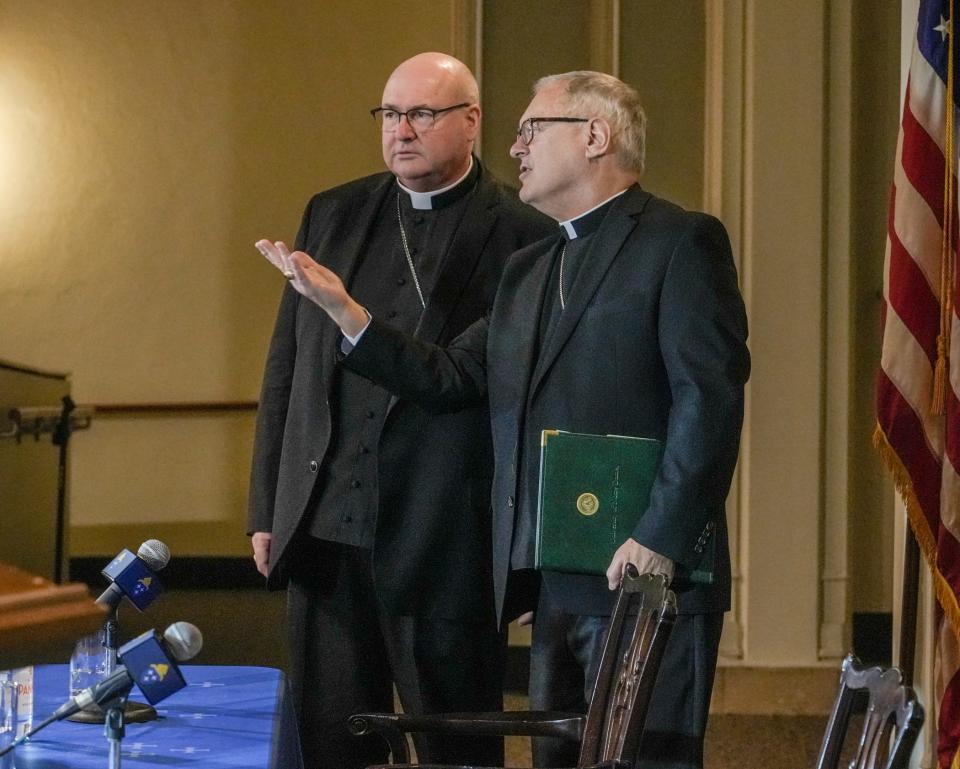
When it comes to these divisive topics, Henning is keenly aware of both the feelings people have and the beliefs of the church, his beliefs. For him, the answers can’t be broken down into glossy sound bites but require depth.
When it comes to same-sex marriage, he says, it “doesn’t work in Catholic theology.”
“The sacrament of marriage has always been theologically linked to procreation,” he said. “Culture has basically defined marriage in terms of affection between two people. It’s about how you feel about the other person. That’s what defines marriage. But for us, marriage was never actually only about the two people. That was a key element of it ... but for us, that’s only ever been one dimension of marriage. Ultimately, the gift of marriage is about a participation in God’s life and the power of the conception and the raising and educating of a child. The idea of expanding marriage beyond that doesn’t work in Catholic theology.“
“That doesn’t mean that the church hates people who have same-sex attraction,” he continued. “That doesn’t mean that they’re somehow evil or anything like that, right? All of us are sinners, in fact, in need of grace. I certainly am. It’s not a condemnation to say we can’t do that. … I do understand the argument that that somehow marginalizes or makes people feel that they’re rejected, but that’s certainly not the intention.”
Every life, he said, is sacred and deserving of dignity.
And that carries into the conversations around abortion.
“The question I always have to ask is, if the child in the womb is not human, then what is it?” he said. “There’s a truth here that needs space at the table, too, and for us, as Catholics, it’s really important that we keep standing up for that, and I will certainly do that.
“Now, I know that in Rhode Island the laws are going to be highly permissive. It occurs to me, though, why in Rhode Island can’t we give women a genuine choice?” he said. “We do our best to help women have their baby, if that’s what they wish, and we have limited resources to do that. I wonder why, in a state that strikes me as so human and so welcoming, there isn’t more room in our hearts for the most vulnerable among us?”
These concerns, he said, also apply to assisted suicide and cloning and gene editing, which all raise questions about “how we understand human dignity.”
“As much as people may be angry or disagree with the church, I wish they could find it in their hearts to at least say, ‘Well, it’s a voice that needs to be heard in the debate,'” he said. “And certainly, whether people want to hear us or not, we will be speaking that voice.”
‘He has a pastoral heart’
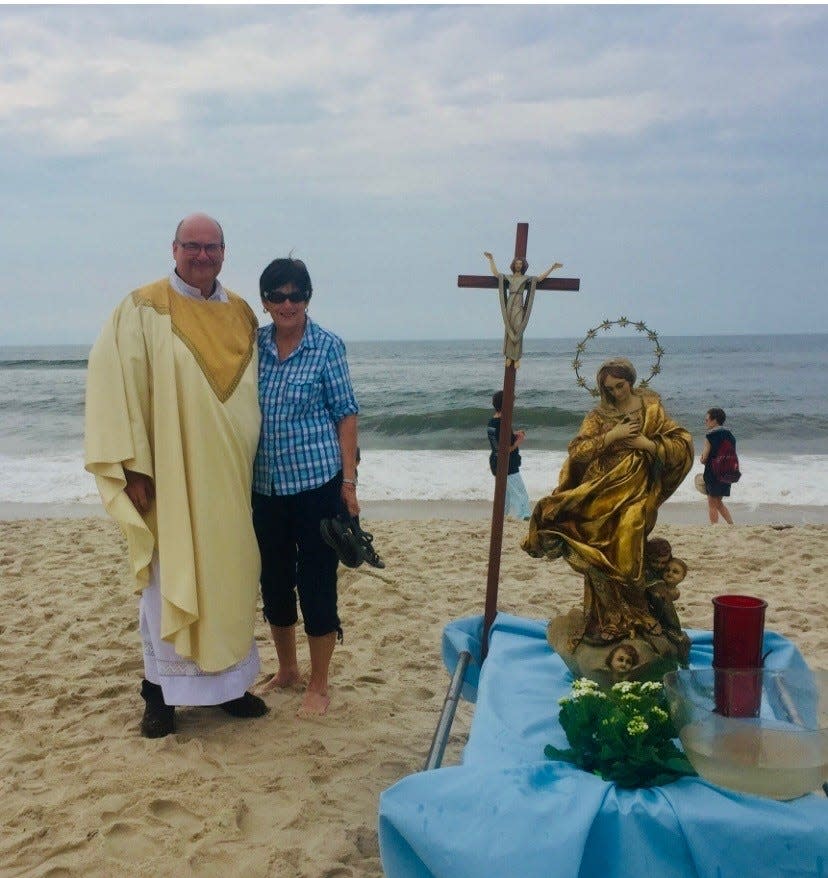
Since coming to Rhode Island, Henning seems more than a little surprised by his new life as a Very Important Person.
He’s the kind of man, his friend Maggie Killeen said, who’s happiest out on the water or at a dinner table with people who have welcomed him as just a part of the group. He’s most himself, she said, while sitting at a hospital bedside, as he did when her son’s kidney failed. Or talking to someone who can no longer leave their home, as when he visited her mother on Sundays after Mass. Or when he’s officiating at a wedding, as he did for two of her sons.
“He has a pastoral heart,” she said. “I hope Rhode Island gets to know that pastoral heart of his.”
“I don’t see myself as a VIP,” Henning said. “That’s a bit of a trap for the church. It really is. I know people are treating me that way, and it’s part of the welcome, but I don’t think of myself that way.”
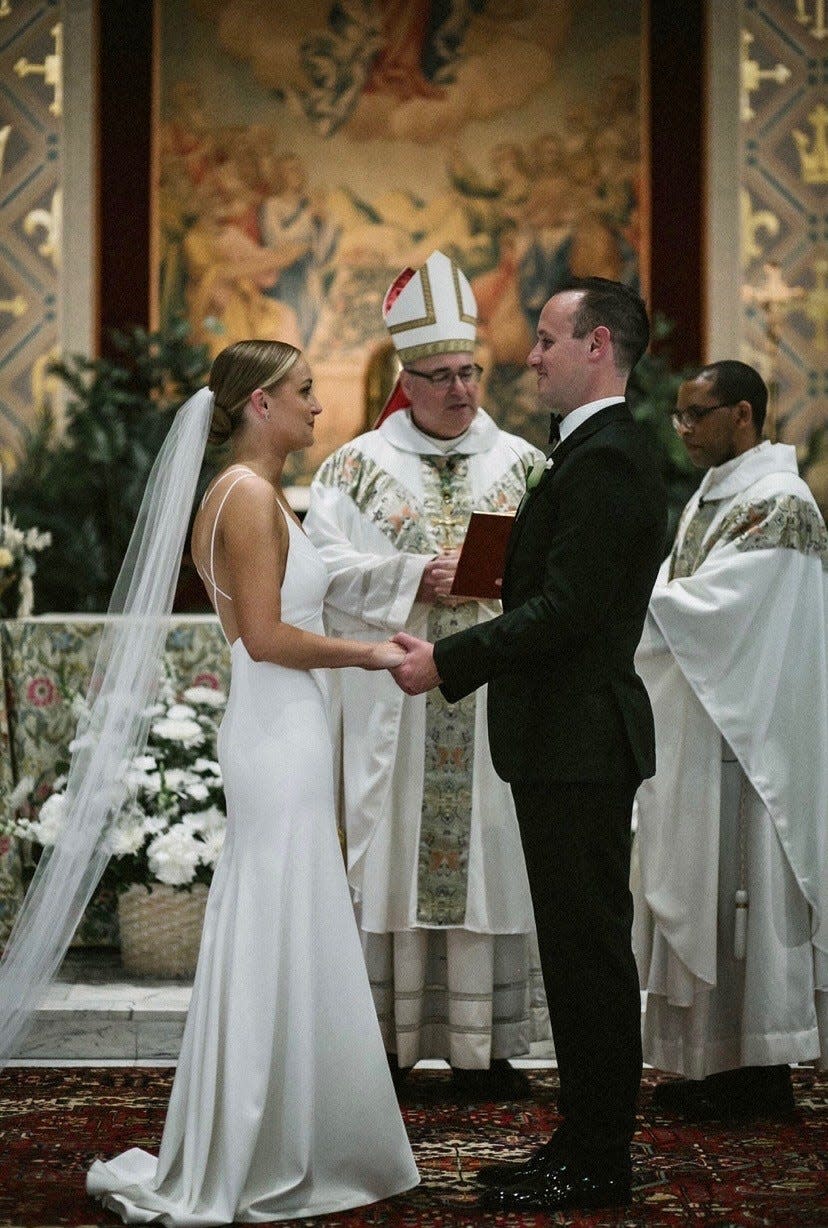
A pastor is still how he sees himself, first and foremost.
“I’m one human being. I wear a big hat and I have a big staff,” he said. “But I can’t myself do anything. My role here is Chief Shepherd.”
Another way to look at it might be Chief Fisherman.
The Bible story from which he took his motto is the one where Jesus first gains his disciples, a moment of care, gathering and revival, where he tells Simon, who had fished all night without success, to have his crew “put out into the deep” their nets to catch fish for a hungry crowd. When they pulled out nets heavy with fish, Simon and the crew joined Jesus.
This is now Henning’s call to Rhode Island Catholics. Trust. Come with him. Put out into the deep.
“Don't stay in the shallows, don't look at the surface,” Henning said. “Go to the depth, go to the heart of the matter. “
This article originally appeared on The Providence Journal: What are Bishop Henning's priorities for leading RI's Catholic Church?

